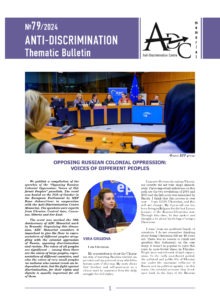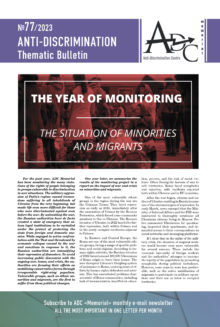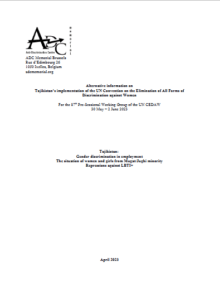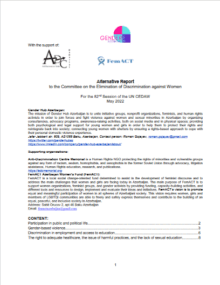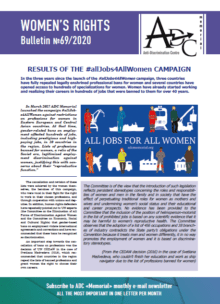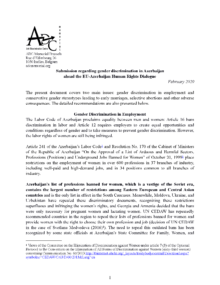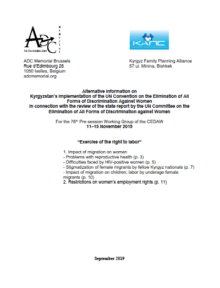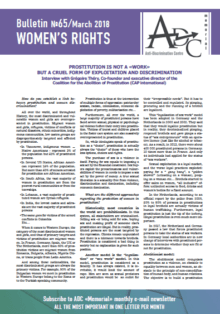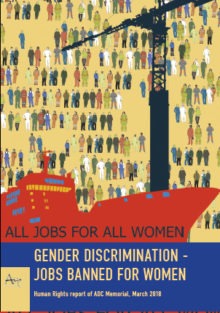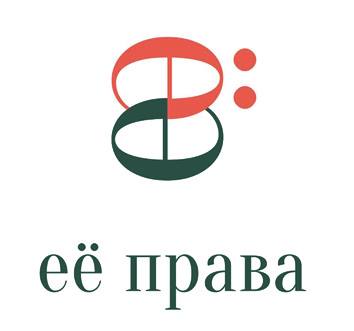All jobs for all women
CANCEL LISTS OF TYPES OF JOBS AND PROFESSIONS BANNED TO WOMEN IN ALL EASTERN EUROPEAN AND CENTRAL ASIAN COUNTRIES
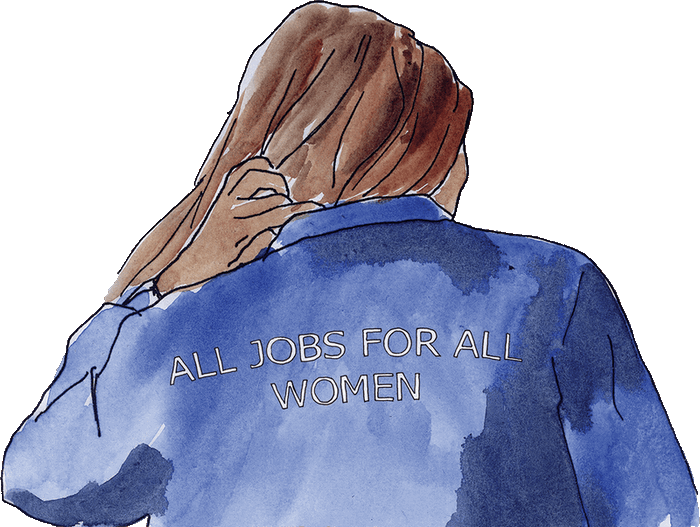
CAMPAIGN NEWS
- 17.06.2025
Anti-discrimination – the topic of the ADC Memorial’s bulletin
- 11.04.2025
ADC Memorial presented the results of the #AllJobs4AllWomen campaign at an academic conference in Paris
- 07.03.2025
Achievements of the advocating women’s rights in Kyrgyzstan: to be continued
- 19.02.2025
The List of Professional Bans for Russian Women Continues to Shrink
- 03.02.2025
Kyrgyzstan lifted professional bans for women. An important stage of the #AllJobs4AllWomen campaign
- 28.11.2024
ADC Memorial and Bir Duino-Kyrgyzstan have prepared a report on violations of the rights of Kyrgyz migrants in Russia
On the Bans
Lists of professions banned for women are a relic of the Soviet era. Overt discrimination of women in the workplace is attributed to concern about their “reproductive health.”
Laws in Belarus, Russia, and Tajikistan still ban women from hundreds of professions, including high-paying and prestigious ones.
The longest list of restrictions in the region has been in force in Azerbaijan since 1999 and bans 678 jobs in 38 sectors. From 31 May 2023, work restrictions have only remained for pregnant women and women with children under 1 year of age.
In Uzbekistan, professional bans for women were lifted on May 1, 2019, but soon after the country published virtually the same list of banned jobs, only the restrictions were framed as recommendations. In practice, women still cannot secure employment in professions that are “unadvisable” for them.
Armenia and Georgia have removed mentions of the lists from their labor codes, but restrictions still exist: Armenia has not yet revoked its list of jobs and professions harmful for women, minors, and persons with disabilities, while Georgia still has a similar list banning certain jobs for women who are pregnant or nursing.
During the campaign, the ban on professions for women was lifted in Moldova (2017), Ukraine (2017), Turkmenistan (2019), Uzbekistan (2019), Kazakhstan (2021), and Azerbaijan (2023). Lists of prohibited professions have been shortened in Russia (2021), Belarus (2022) and Tajikistan (2023).
There are three main objections
to statements of concern about women’s reproduction:
1. There is no scientific evidence of harm to women’s health for virtually any of these “banned types of activities”
why is installation on the ground not harmful, but installation in the air is? Why can women work as crane operators on dry land, but not on water platforms? The UN Committee on the Elimination of Discrimination Against Women requested that the RF to submit scientific evidence that it is harmful for women to work as a helmsperson-motorist (when it was considering the case of Svetlana Medvedeva, who complained of being denied employment in her specialization with a river fleet – in this case an entire body of restrictions on the labor rights of women was found to be discrimination), but the RF government did not submit any evidence.
2. Women have the right to decide for themselves what is more important to them
being a mother (i.e. realize the reproductive function that the government is so concerned about), or being a successful professional, going out to sea, working in the air, or doing other interesting things, being successful, and attaining career growth. If there is a risk to their reproductive functions, women should be warned about them. In many cases, risks should be taken into account when planning pregnancy, but this should not lead to blanket bans on certain types of activities.
3. Bans violate the principle of equal rights for men and women
there are no bans connected with risks to the reproductive health of men (even though their reproductive functions could be harmed in a number of professions, like atomic scientists on nuclear submarines). Moreover, men are left the choice of being professionals or engaging in reproduction. The state does not intrude on the choices men make, but it does on the choices women make (in the form of a legislative ban!), which is direct discrimination.
Pro et contra
EXPLANATIONS OF DISCRIMINATIVE BANS
…harmful factors in the working environment create a professional risk for a woman’s reproductive health, and it has been established that the female organism has a greater sensitivity to the effects of many harmful factors (include noise and vibrations). Banning women from a number of harmful and difficult jobs is dictated by the need to preserve women’s health and the quality of health of the new generation. These types of jobs include train operators [metro] and assistants… Work in this specialization frequently takes place under severe time constraints combined with high responsibility for life and the integrity of material assets. These jobs require workers to maintain a high level of attention and concentration, to be able to to quickly react to multiple light and sound signals, to remember a significant amount of instruction material, to process this information, to formulate the correct decision, and to take certain operational actions… The argument in the cassation appeal that it was not proven during consideration of the case that a woman cannot work under time constraints and physical and emotional stress has no legal meaning.
(From the RF Supreme Court ruling in the case of A. Klevets, 2009)
The principle of legal equality cannot be realized without account for the generally recognized social role that women play in continuing the human race… Parts one and three of Article 253 of the RF Labor Code restrict the use of a woman’s labor for difficult, harmful, and/or dangerous jobs, as well as for underground jobs, i.e. in conditions that have an adverse impact on the female organism, and have the goal of protecting a women’s reproductive health from the impact of harmful workplace factors.
(From the RF Constitutional Court Ruling in the case of A. Klevets, 2012)
RF laws have established several restrictions on female labor. These restrictions are in no way discriminatory against women. Rather, they are measures to protect women from various types of adverse effects on their health, and, ultimately, on such an important function as motherhood. Thus, workplace hygiene for women envisages restrictions on hiring women for certain types of work.
(S.V. Alekseyev, V.R. Usenko. Gigiena truda. [Hygiene of Labour]. A handbook for students of medical universities. Moscow, 1988)
ANTI-DISCRIMINATION DECISIONS AND OPINIONS
The Committee is of the view that the introduction of such legislation reflects persistent stereotypes concerning the roles and responsibilities of women and men in the family and in society that have the effect of perpetuating traditional roles for women as mothers and wives and undermining women’s social status and their educational and career prospects. No evidence has been provided to the Committee that the inclusion of the position of helmsperson-motorist in the list of prohibited jobs is based on any scientific evidence that it may be harmful to women’s reproductive health. The Committee observes that the adoption of a list of 456 occupations and 38 branches of industry contradicts the State party’s obligations under the Convention because it treats men and women differently, it in no way promotes the employment of women and it is based on discriminatory stereotypes.
(From the CEDAW decision (2015) in the case of Svetlana Medvedeva, who couldn’t finish her education and work as ship navigator due to the list of professions banned for women)
No specific studies or data exist to confirm the distinctly harmful impact of these professions on a woman’s reproductive health in modern times. There is also no evidence that employment in these professions has a different impact on women than it does on men… Any job that involves lifting objects over 10 kg two times in one hour is banned. Meanwhile, a one-year-old baby weighs 10 kg on average, and the state does not in any way restrict mothers from lifting and moving their babies.
(Report of the Consortium of Women’s Organizations (Russia) to CEDAW, 2015)
The effective List of hard, dangerous and harmful jobs in Ukraine adopted by the Order of the Ministry of Health # 256 of 29.12.1993 bans women’s employment at certain jobs. In particular, women can’t drive vehicles with more than 14 passenger seats, tractors and other agricultural vehicles, sea and river boats, or be employed at a number of industrial and agricultural positions. According to the Human Rights Commissioner, an effective List of hard jobs should be revised and brought in line with the principle of equal opportunities of men and women in the sector of employment.
From a report of Ukraine’s human rights ombudsman to CEDAW (2016)
In 2015, Moldovan Equality Council recommended repealing the Classification of industries, professions and works in difficult and harmful conditions, which are prohibited for women, approved by Government Decision No 264 of 06 October 1993, because it is discriminatory on the grounds of sex.
The Committee is concerned by the existence of a list of professions declared dangerous for women, which reinforces discriminatory stereotypes and occupational segregation. The Committee recommends that Armenia abolish the list of jobs and professions dangerous for women, minors, and people with limited capabilities for work.
(Concluding Observations of the UN CEDAW on Armenia, 2016).
The Committee is, concerned about the Labour Code containing an overprotective list with a significant number of professions prohibited to women, allegedly to protect their health, especially their reproductive health; the failure of employers to create sufficiently safe conditions in line with exemptions to the list provided for by law…. The Committee recommends Belarus to review the list of restricted professions to ensure that it covers only restrictions which are absolutely necessary for the protection of maternity in the strict sense, and promote and facilitate women’s entry into previously listed jobs by adopting temporary special measures
(Concluding Observations of the UN CEDAW on Belarus, 2016).
The Committee is concerned about the overprotective list of more than 450 occupations and almost 40 branches in which women are precluded from access to the labour market, although procedures have been introduced that, under certain conditions, exceptionally can provide access for women to those occupations. The Committee calls upon the Russian Federation to review the list of restricted occupations and sectors to ensure that it covers only restrictions necessary for the protection of maternity in the strict sense, and promote and facilitate women’s entry into previously listed jobs by improving working conditions and adopting appropriate temporary special measures.
(Concluding Observations of the UN CEDAW on the Russian Federation, 2015).
“Restrictions must be rare and should only be applied in exceptional cases, when the use of a woman’s labor may be linked to a serious health risk. But still, the right of a woman to decide if she agrees to that risk or not should take precedence.”
Attorney Dmitry Bartenev
All jobs for all women
About campaign
The goal of the campaign All Jobs for All Women is to achieve
the cancellation of lists of types of jobs and professions banned
to women in all Eastern European and Central Asian countries
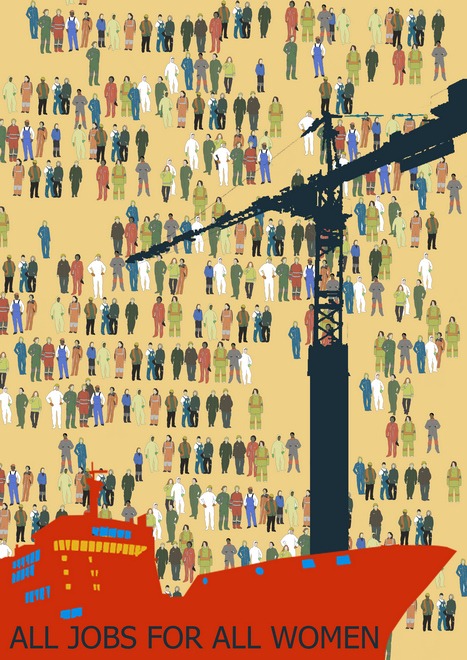
Women must be granted equal access to all types of activities and work, professional fulfillment, and good pay.
All women have the right to good jobs corresponding to their qualifications, education, interests, and life plans. Restrictions concerning appearance, age, and “beauty” are as inappropriate in most professions as gender bans (exceptions are modeling and some forms of advertising). For example, the requirement that only slim young beauties can be hired as flight attendants on passenger planes is the same kind of stereotype as the notion that a woman’s duty is to give birth and not work on a ship or in the metro.
Many countries still have similar patriarchal views of the “suitability” of women, when a candidate’s external features are considered more important than her professional qualities (whether there’s a requirement for external “beauty” and “style,” or, on the contrary, if a stylish appearance is seen as interfering with work).
Campaign’s successes
The #AllJobs4AllWomen campaign was officially launched on March 8, 2017.
On August 25, 2017 amendments to Moldova’s Labor Code entered into force. The article concerning the list of banned professions was removed from the Labor Code. Superfluous professional restrictions for all women have been replaced with protective measures for pregnant women and new and nursing mothers, including temporary transfers to lighter jobs with retention of average earnings.
A resolution issued by Ukraine’s Cabinet of Ministers took effect on December 22, 2017. This resolution revoked Health Ministry decree No. 256 of December 14, 1993, which contained a list of 450 professions banned for women, with the exception of Chapter 3 – mining work. This chapter will be revoked after Ukraine denounces ILO Convention No. 45, which bans women from underground work in any type of mine. Articles 175 and 176, which envisage restrictions on women working during the night hours or when they are pregnant or have children under the age of three, remain in force in the Labor Code.
On May 1, 2019, Uzbekistan’s cancelled list of sectors and professions banned for women was reframed as a set of recommendations, thus keeping women out of “unadvisable” professions. In March 2022, UN CEDAW recommended that Uzbekistan review this list; make it easier for women to access these professions; and ensure that any restrictions are reasonable and are applied only in specific cases and not indiscriminately to all women.
On August 14, 2019, Russia’s Justice Ministry removed approximately 100 professions from the list; these changes entered into force on January 1, 2021. The list is still being shortened: Beginning March 1, 2022, an order of Russia’s Ministry of Labor and Social Protection removed the positions of mechanic (technician) for airframe and propulsion, for instruments and electrical equipment, for radio equipment and for parachutes and life-saving equipment; aircraft technician for fuels and lubricants; wing technician; and airplane (helicopter) maintenance technician from the list.
On October 12, 2021, the Kazakh president signed amendments to the Labor Code resulting in the repeal of the list of professions banned for women; Article 16 still lists maximum weights that women can lift and move by hand.
In November 2021, members of the Kyrgyz state delegation attending the 80th session of CEDAW expressed their readiness to overhaul the country’s restrictive approach to women’s work and made gender equality a priority in terms of state labor policy.
June 2022. Government agencies in Azerbaijan and Belarus announced that they would be shortening their lists of banned professions (from 678 to 241 in Azerbaijan, and from 181 to 90 in Belarus). Jobs that no longer pose a threat to women’s reproductive health due to technological developments were removed from the lists.
December 2022. A bill revoking all restrictions on jobs for women was submitted to Russia’s State Duma with the recommendation that it be reviewed during the Duma’s spring session.
Women stories
Svetlana Medvedeva
Evgenia Markova
Evgenia Markova fought for her right to work in Russia as a truck driver for a long time, and achieved her goal despite the law banning this profession as “hazardous for women”. In the video clip (made specially for ADC Memorial campaign) Markova tells how passionately she wanted to be a lorry driver, how persistently she pursued this job, how she was outraged with the discrimination “by birth”, with the injustice of the prohibition for women to work.
The case of Evgenia shows that there is no jobs “not for women”; a woman (by the way, a successful intellectual having two diplomas, an IT-specialist in high demand, a happy wife) can prefer the very job that the state considers necessary to “protect” her from.
Elena, Roma activist
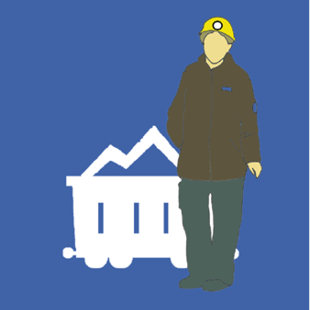
In Luhansk Oblast, women worked in the mine, two days on, two days off. Their wages in 2012 amounted to 1,500 hryvna, while men earned from 3,000 minimum (our neighbor received a pension of about 6,000 hryvna)… During a shift, each woman was expected to shovel one ton of coal. What’s more, they worked up to their knees in water, even in the winter. There was one case when the mine was flooded during the summer because of the rain. One female worker was in the basement. If she had not known how to swim, she could have drowned in the mine. Our relative worked in the mine. She was 30, and her muscles were so large that she could have been a bodybuilder, that’s how much coal she shoveled. This work was not banned. That’s how the state maimed itself (length of service was calculated for harmful work). And workers got free coal, even the union functioned, there was the opportunity to visit clinics. But I think all of this was paid for with jeopardized health. Women took these jobs because there was no other work. So, to me, when the state says it is taking care of women, I personally don’t believe this. By banning one profession, they close their eyes to the women brought to despair, who don’t know how to survive in unstable times and will agree to heavy labor.
V., navigator
After long years of drudgery, I found a job on the fleet, on a tow boat in the Saint Petersburg seaport. At the same time, I was studying to be a navigation engineer at the Admiral Makarov State Maritime Academy. I was forced to quit in 2015 because it turned out that the job of sailor was “harmful for women.” In this case, refusal of work solely on the basis of gender amounts to discrimination, which is banned by the Constitution and RF labor laws. I am being educated in a specialization, which means that under the law I must be offered corresponding work in the region where I live. For a long time, everything has been modern on our boat: hoists, cranes, and the on-shore repair brigade from the shop does all the heavy work. So I don’t lift anything heavier than mops and ballpoint pens, but this law is protecting me from heavy work. I am grateful to management that they didn’t apply this law on banned professions for women to me right away – those were the happiest 20 months of my life. Now I don’t have any prospects for work in this country. I’m not asking anyone to promise me the moon, and I don’t want money. I just want to go back to my favorite job, where I was in the right place and handled my responsibilities. I paid my taxes from my salary without fail, and now, in the middle of a crisis, in the winter, right before exams, I have found myself out on the street and will have to file for unemployment. And who is better off in the end for this? Have all the problems in this country really been solved? Is firing people from their beloved jobs all that is left?

A.V., PRINT PRESS WORKER

In July 2017, a transgender woman living in St. Petersburg named Anastasia Vasilyeva (whose name has been changed in this story at her request) came out as a trans woman. After changing her government identification documents, she was promptly fired from her job at a printing press on the grounds that women in Russia are barred from this profession. Vasilyeva had worked at the company for more than a decade, but her employers cited a federal provision introduced in 2000 that makes it illegal for women to hold 456 different jobs, claiming that the occupations are simply too strenuous, dangerous, or harmful. Print press work is included on this list. Vasilyeva is challenging her dismissal in court, arguing that the prohibition of hundreds of professions for women isn’t about protecting them, but discriminating against them:
“I want to show my former colleagues that they were wrong from the start, and they’re still wrong. My leaving doesn’t mean they won. And what’s more, I want to fight against discrimination. Many women face the fact that they’re not allowed to do certain things simply because others have decided for them. Others have decided that, since they’re women, they should just give birth, make soup, raise the kids, and that’s it. These are gender stereotypes. I look at my story as a lever with which it might be possible to try to reduce the number of professions where women are banned, or maybe to get rid of the list altogether. Using my dismissal, I want to achieve for women the right to choose who they’ll be and where they’ll work.”
(by Meduza)
Support
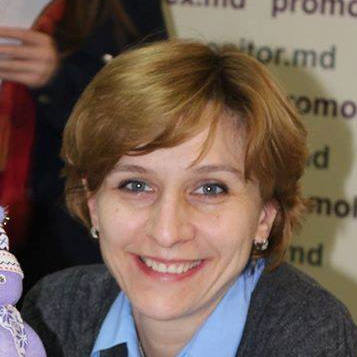
I support the Campaign All Jobs for All Women because I believe that women have the right to choose their jobs and build their careers freely and that all legal provisions that prevent gender equality in employment should be repealed.
Olga Manole, Human Rights Program Coordinator, Promo-LEX Association / Moldova

Everyone should have the right to choose any profession they want, regardless of their gender. Other than severe health risks during pregnancy — a risk limited to a certain time frame — there are no valid reasons for excluding women from certain jobs.
Cia Rinne, poet and artist (Germany)
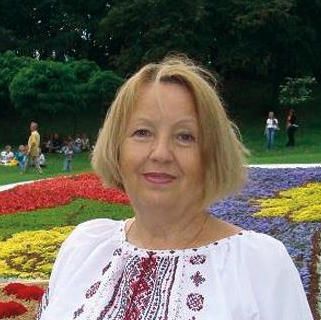
I support the All Jobs for All Women campaign and am convinced that women can work in any field, build a successful career, and benefit any company. Bans on professions and types of work not only limit Ukrainian women’s opportunities for self-fulfillment, but also cause the state to lose enormous potential.
Yevgeniya Lutsenko, director, Center for Social and Gender Studies (Ukraine)

Women can work in any field and carry out any task — not worse than the men, in the past a lot of jobs were given only to men, we — women had to make our way in politics, in business, in art. We proved that we can be successful in anything and give impact to everything. Indeed all jobs have to be accessible to all women without discrimination and patriarchal stereotypes.
Rita Sussmuth, former President of Bundestag, President of ADC Memorial

Only women should decide for themselves where to work and what professions to choose. The role of the government is only to create comfort and safe conditions at working places so both women and men could joyfully and fully embrace all the benefits of a chosen sphere of work.
Aliaksandra Dzikan, Her Rights Center (Belarus)
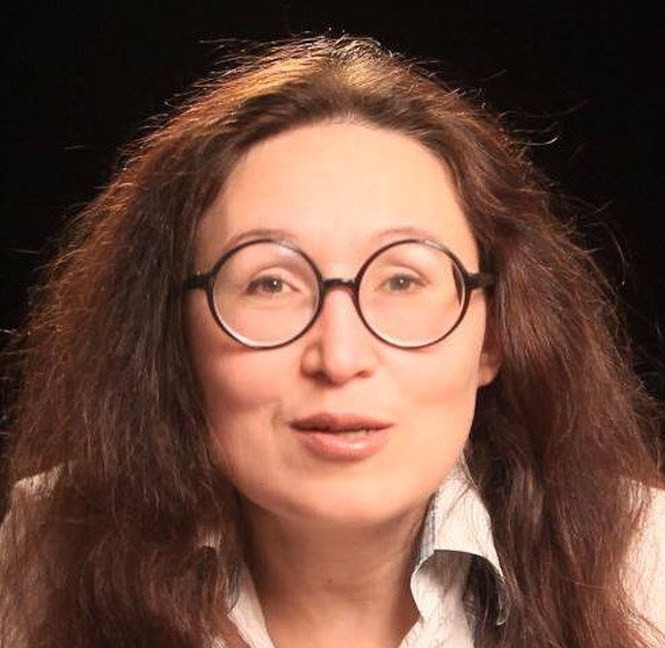
The list of professions banned for women in Russia is an echo of the totalitarian Soviet system, where the state believed it was entitled to make decisions for people by hiding behind “noble” purposes. If professions on this list are harmful, then the state’s responsibility is to inform people of possible risks and consequences, while the right to choose lies with us.
Tatyana Chistova, film director (Russia)
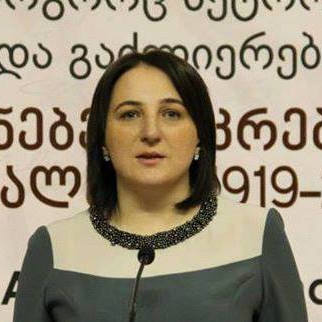
I fully support and join the campaign "All jobs for all women". Harmful , discriminative records linked to ban a list of the professions , that is the vestige of the Soviet Union and contradicts the principles of equality and CEDAW Convention must be immediately restricted in the countries which still are facing this discriminative practice. It is crucial not only to eradicate those records, as well as states should endeavor to ensure protection and preserve of women's labor rights in accordance to their legislation and constitution.
Elene Rusetskaia Director Women's Information Center

I am not what I am allowed to be, I am what I choose to become.
Yevgeniya Ivanova, expert at the Civil Society Institute (Armenia)

It can be difficult to work in the financial sphere, because women are still in the absolute minority and are not taken as seriously as men. But I'm sure that with time women will start to be respected more and more for their achievements, as professionals and colleagues, and not as the "weaker sex" and "an office decoration."
Tanya Savkin, Vice President - Senior Analyst, Moody's

I support campaign "All jobs for all women", because I think that every adult person should have a right to choose what is good for him/her. With it's bans the goverment doesn't protect women - it denies them the right to decide for themselves.
Anna Doniewska, activist, Poland

On the one hand, the list of professions banned for women is supposedly meant to protect and look out for women by invoking their lesser physical abilities in comparison to men. On the other hand, if we look at the reality of life in a permanent economic crisis, where social protection institutions are simply not functioning and where each day is struggle to survive, then we see that a large number of women have the hardest and lowest-paying jobs. This includes in mines, where they are not officially listed as miners and supposedly work in offices on the surface. This means that female miners do not receive social protection, do not receive the same pensions as male miners, and, in the event of an accident, their relatives do not receive insurance, benefits, subsidies, or state support. Like many other women, female miners received reduced “envelope” wages, and if they are not paid, they cannot demand justice from state authorities. They are “invisible” while performing the most complicated, dirty work.
Maria Kulikovskaya, artist, architect, curator, auctioneer
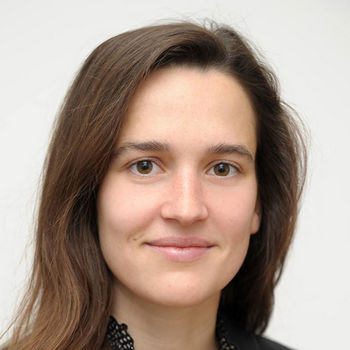
The formal gender equality was established hundred years ago with equal universal suffrage. We still now see women in post-socialist countries - and not only there - to be barred from certain jobs, and we hear a Polish Conservative MEP babbling in the European Parliament that "women are weaker, smaller and less intelligent, thus should be paid less". We are in the 21st century, and not allowing women to proceed in certain professions is not only delusional, it's illegal under international law.
Alena Krempaská Program director of Human Rights Institute, Slovakia

According to recent studies, male drivers are more often involved in serious road accidents than female drivers. Given this, the existing ban for women to work as drivers of buses carrying more than 14 passengers (except for those engaged in intracity and suburban transportation) leaves one bewildered. This ban should be condemned, and the same goes for the ban for women to be drivers and driver’s assistants on electric and diesel locomotives, electric and diesel trains.
Anton Zvezdochkin, student of international relations (Russia)
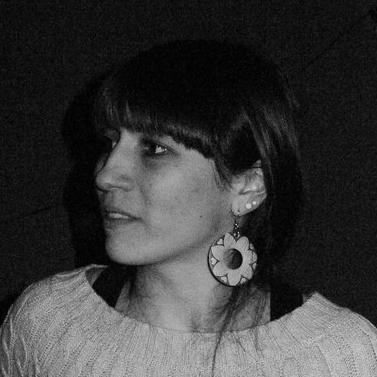
In our society there is a stereotype, which is still widespread, that a woman’s role is primarily that of a mother. This attitude is also reflected in the regulatory norms of labor relations and judicial practice. However, for some reason, the role of a father is not attributed to a man in a priority fashion. This in turn leads to various gender-based restrictions of possibilities for self-realization in work. However, no one has the right to impose onto a person, be it a man or a woman, his of her social role or professional occupation. No one has the right, based solely on the fact that a person has children or the ability to bear children, to decide for whether this person can cope with work, to limit her or his opportunities for employment and professional development. Every person is entitled to make different choices. The task of the state and employers is to support a person’s choice through provision of information and social guarantees.
Yevgenia Galkina, lawyer (Russia)

As a feminist, I support the campaign 'All Jobs for All Women'. Limiting the spaces women occupy and delimiting positions where women can work is a primary result of the gender inequality and patriarchal culture. More then this, we have to ensure women's labor rights are protected and women, participating in labour force are given special tools and instruments for empowerment and equal participation.
Anna Iluridze, Head of the Gender Equality Department, Public Defender's Office of Georgia.

I’m troubled by this kind of restriction on women’s rights. I work in a sphere that is permitted by law, but society doesn’t see this profession as “female.” And there are lots of stereotypes like this around. I meet all kinds of different people and get a variety of reactions, especially from men, at least until they start talking about technical topics with me. I wish that our choices were treated with understanding and support. There are no “female” and “male” professions. This division exists only in people’s heads.
Alina Anisimova, programmer, Kyrgyzstan

"The gender is not the ceiling!" Research shows that women face gender discrimination at work. Therefore, it is necessary to fight for the abolition of any legislative prohibitions for women, which prevent them from working in certain professional spheres.
Irina Solomatina, founder of the Gender Route project in Belarus





